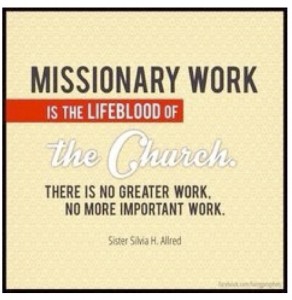 Dear reader, last week we talked about charities getting financial incentives from government for doing the heavy lifting that governments were less inclined to do.
Dear reader, last week we talked about charities getting financial incentives from government for doing the heavy lifting that governments were less inclined to do.
We regret if any inference was made disparaging the sterling work done by charities in the more remote communities of Central Australia. The recipients of all these worthy NGO’s, are immeasurably better off for assistance provided for problems that just never seem to go away. We also may have suggested that the charitable mechanisms (and there are numerous worthy examples) once initiated are self perpetuating and don’t ever seek to solve the core problems. Thinking beyond the square is not part of being a charity. Their lot is to serve. That’s why there always more and more good work to be done by charities. For problems that cannot be fixed, just assuaged. That’s what makes them noble and tax free.
Religions are also tax free They are entitled to tax free status in order to propitiate their message and help those in our community who require spiritual, (adherence to a monotheistic judeo christian god) nourishment. Curiously most adherents to the monotheistic god tradition believe that (as is stated clearly in the texts) that women are subservient to men, that an almighty deity created the world in several days, and that the animal kingdom, the biota and ecological systems we require to sustain life are secondary to human-kinds destiny to use and exploit. This also makes them intolerant of all other belief systems. It’s a kind of spiritual tribalism. These practices and the ideology it sustains are contrary to the principles of evolution, ecology and science, yet they receive a tax incentive paid for by us to maintain their exclusivist belief system. It also allows them to develop and grow a real estate portfolio, (often a corollary of religion), and notions of preferment in the ongoing process of lobbying government to achieve their justified aims.
 Education is also an interesting subset of the charity industry in that private schools are allowed to be discriminatory. To maintain a gender bias, uphold patriarchal or exclusivist belief systems based upon material and economic entitlement, and uphold a value system which is conformist, anti social and isolationist. The fundamentals are that government funding is required to balance certain other inequities in the education system, namely access to disproportionate amounts of taxpayer cash, and the right to develop, (bit like religion) the ancillary benefits of real estate, material and economic growth in pursuit of ensuring that a disproportionate amount of students gain access to preferred tertiary institutions. And as most private schools are church based, their moral authority is unquestionable. And through maintaining these artificial disparities based upon wealth, access and entitlement, the system perpetuates itself by reinforcing the notion of “ preferment ” within an exclusive hierarchical subset in which all decisions within society are invariably made from within that clique.
Education is also an interesting subset of the charity industry in that private schools are allowed to be discriminatory. To maintain a gender bias, uphold patriarchal or exclusivist belief systems based upon material and economic entitlement, and uphold a value system which is conformist, anti social and isolationist. The fundamentals are that government funding is required to balance certain other inequities in the education system, namely access to disproportionate amounts of taxpayer cash, and the right to develop, (bit like religion) the ancillary benefits of real estate, material and economic growth in pursuit of ensuring that a disproportionate amount of students gain access to preferred tertiary institutions. And as most private schools are church based, their moral authority is unquestionable. And through maintaining these artificial disparities based upon wealth, access and entitlement, the system perpetuates itself by reinforcing the notion of “ preferment ” within an exclusive hierarchical subset in which all decisions within society are invariably made from within that clique.
To offset this gnawing sense of entitlement and exclusivity these institutions invariably go to quite a bit off effort in presenting very elaborately constructed credentials of their social conscience. Like charities, they are very keen to let the public know that they’re hard at it on assisting the wretched, the dispossessed, the poor in maintaining a sub-level of dignity. Sometimes, and this has proved quite popular recently, scholarships are offered to the poor and indigent among the first Australians, so that they “can be like us”. It is rumoured that other public spirited individuals go one step further and assist first Australians in achieving the anointment of a Rhodes Scholarship so that the conversion to our value system is complete.  Such is the communication dynamic between these charitable belief systems. Invariably the superior belief system, based upon property entitlement and material and monetary wealth offering salvation to those without. This is often conditional and its value in broader societal terms unquestioned. And besides there’s the overarching charitable principle, “It’s good for them”. And who would be churlish enough to question that?
Such is the communication dynamic between these charitable belief systems. Invariably the superior belief system, based upon property entitlement and material and monetary wealth offering salvation to those without. This is often conditional and its value in broader societal terms unquestioned. And besides there’s the overarching charitable principle, “It’s good for them”. And who would be churlish enough to question that?
